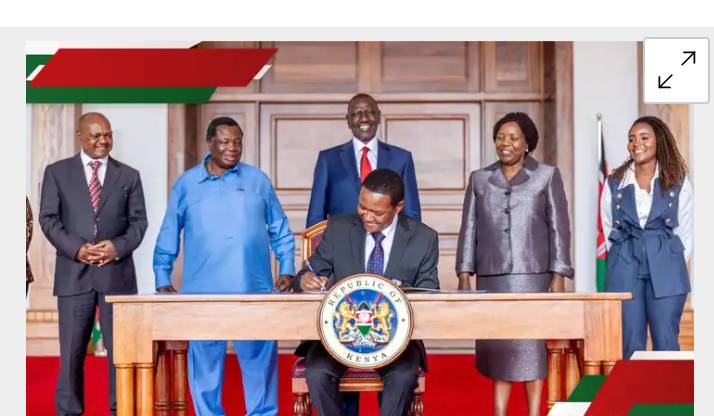Government Sets New Minimum Salaries for Workers After 6% Increase, Covering Househelps, Drivers
The government has announced a new minimum salary adjustment for workers across various sectors, including domestic workers such as househelps and drivers. This development comes in response to rising inflation and the ongoing challenges faced by low-income earners in the country. The 6% increase in minimum wages is aimed at helping workers cope with the increasing cost of living and ensuring that salaries remain in line with inflation and market dynamics.
Details of the Salary Increase
Effective immediately, the government’s wage adjustment will raise the minimum wage by 6%, marking a significant step in safeguarding the welfare of workers, especially those in vulnerable sectors. According to government officials, this decision aligns with the administration's commitment to improving living standards across all employment categories. The adjustment applies to both formal and informal workers, particularly focusing on the latter, who have often been overlooked in policy considerations.
The new wage structure includes provisions for various categories, with specific emphasis on employees who perform domestic and manual labor. Househelps, drivers, and other workers often hired privately are expected to benefit from this reform, which seeks to provide fair compensation for their services. This decision underscores the government’s recognition of the critical role these workers play in society and the need for equitable pay across all employment sectors.
Impact on Workers and Employers
The government projects that this salary adjustment will benefit millions of workers nationwide. Low-income earners, who have historically struggled to make ends meet due to modest or stagnant wages, are expected to experience immediate relief. For many families, particularly those employed in domestic work, the increase could mean better access to basic necessities and an improved quality of life.
However, the wage increase also places new demands on employers, especially within the private sector. Household employers, in particular, will need to adjust their budgets to meet the new salary requirements for househelps, drivers, and other domestic workers. While some employers have welcomed the move, understanding that it is a necessary response to economic changes, others have expressed concerns about the financial impact, especially as they continue to cope with inflation and other economic pressures.
To support this transition, the government has pledged to provide guidance to employers on implementing the new wage standards. Labor and employment offices will be actively involved in educating employers about compliance requirements and helping them navigate any challenges associated with the adjustment.
Ensuring Compliance and Protecting Workers’ Rights
In addition to the salary increase, the government has introduced measures to enforce compliance and protect workers’ rights. Labor agencies will conduct regular inspections to ensure that the new minimum wage is adhered to by both private and corporate employers. The government has also stated that it will implement penalties for non-compliance, with fines or other sanctions possible for employers who fail to meet the new wage requirements.
Moreover, the government has announced plans to launch a campaign aimed at informing workers of their rights under the new policy. Many workers, particularly those in the informal sector, are often unaware of wage regulations and may be vulnerable to exploitation. Through this campaign, the government hopes to empower workers to advocate for fair compensation and to report cases of underpayment or mistreatment.
Response from Labor Unions and Industry Stakeholders
Labor unions and worker advocacy groups have responded positively to the wage increase, describing it as a step in the right direction for workers’ welfare. Many unions had been lobbying for higher wages, citing the cost-of-living crisis that has placed immense strain on low-income families. Leaders of these groups have commended the government for its responsiveness and have expressed optimism about future adjustments that would further improve worker livelihoods.
Employers’ associations, however, have expressed mixed reactions. While they acknowledge the necessity of wage adjustments to reflect current economic realities, some members have voiced concerns about the impact on small businesses. Representatives from the association have called for additional support measures for businesses, such as tax incentives, to offset the added financial burden. The government has indicated it is open to exploring further discussions with employer groups to address their concerns and seek ways to support small and medium enterprises (SMEs) during this transition.
A Positive Step Forward
The new minimum salary structure marks a significant milestone in the government’s efforts to bridge the income gap and enhance the living standards of low-wage workers. By covering a broad range of workers, including househelps, drivers, and others in essential but traditionally underpaid roles, the policy underscores the government’s commitment to inclusive economic development.
For many workers, this increase brings a much-needed sense of hope, especially as they navigate the challenges of a tough economic climate. It represents a positive step toward a fairer society, where every worker's contribution is valued and rewarded, and sets a precedent for future policies aimed at reducing income inequality.
With the government’s continued efforts in wage regulation, workers across various sectors are likely to experience further improvements in their working conditions and earnings, creating a more balanced and supportive economic environment.




No comments yet
Be the first to share your thoughts!